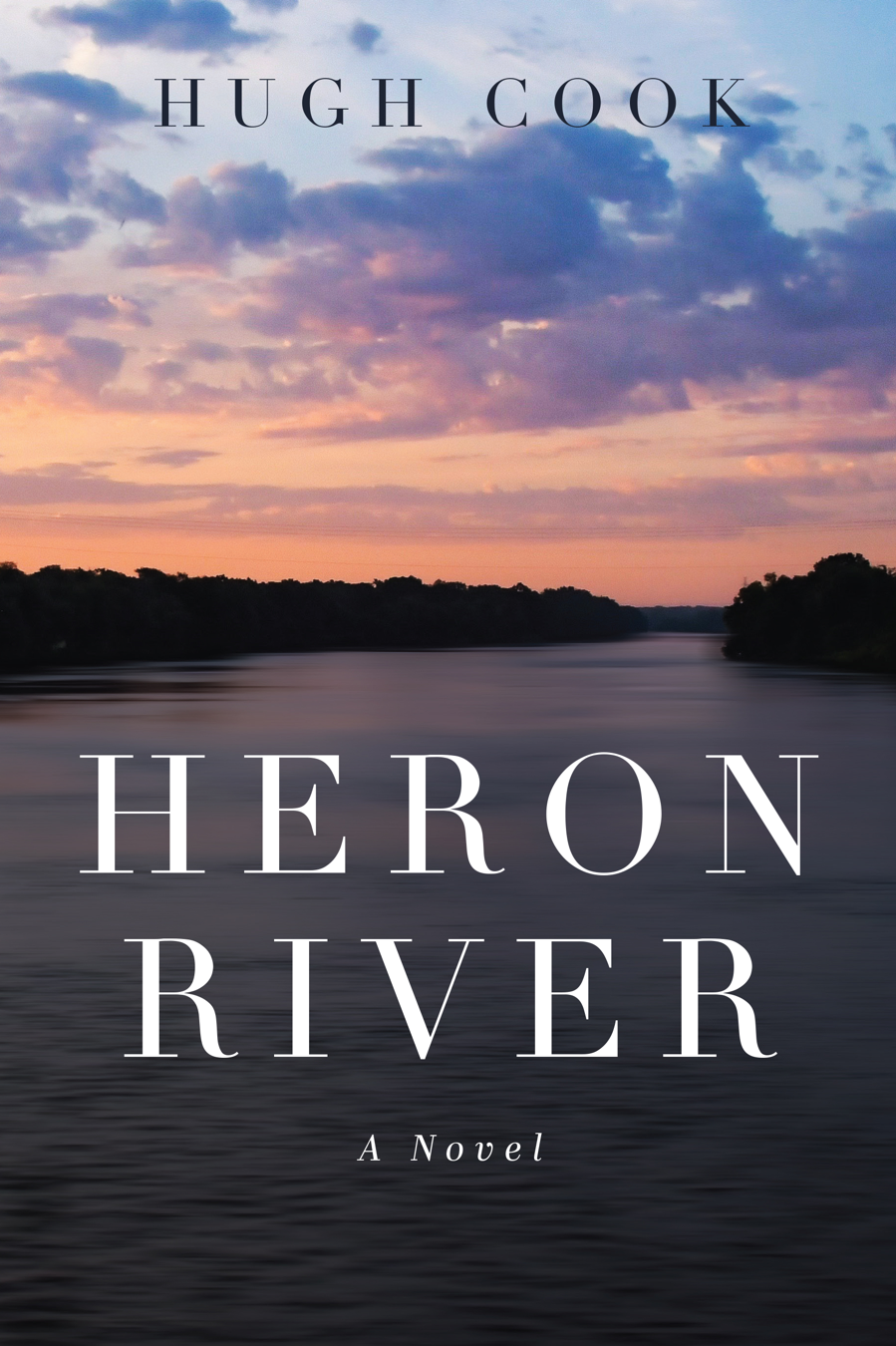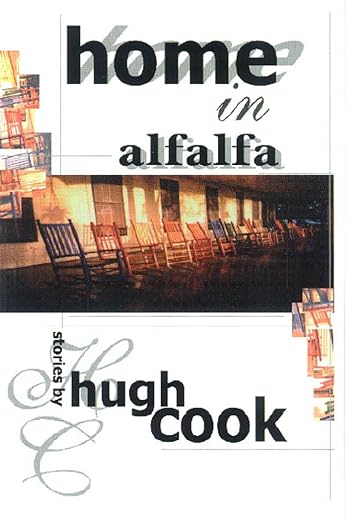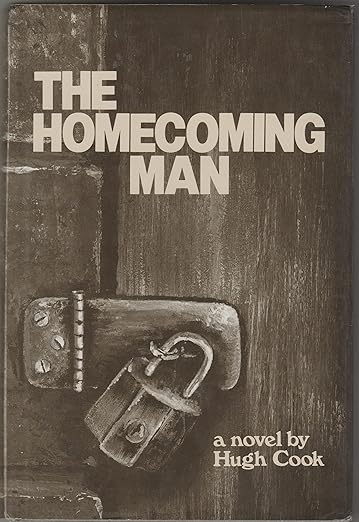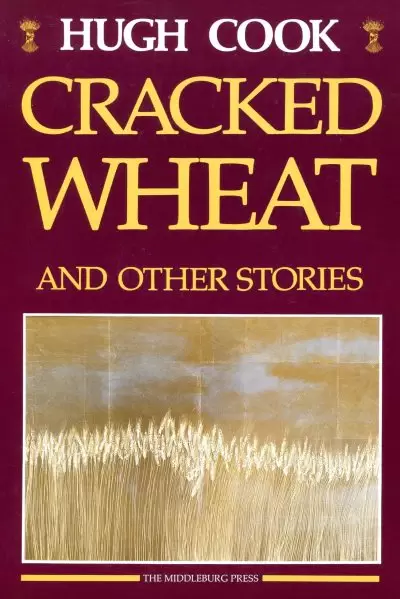Heron RiverSoul Seasons Publishing, Lowell, Michigan
Heron River is a deeply moving exploration of human error and redemption, tragedy and triumph, set in the supposed safety of a small Ontario town. The novel poignantly confronts the necessary possibilities for human forgiveness and love amidst adversity. The threads of the characters’ lives are intricately interwoven. Madeline Harbottle, a woman with a gradually debilitating illness, seeks solace from the pain of the past and the challenges of the present. Her son Adam, damaged from a tragic childhood accident, finds security in his routine existence, until he falls prey to a cunning deception. Jacob Cunningham, a gifted thirteen-year-old boy, harbours a dark secret that he must confront in order to be whole. A young female police officer named Tara Burnaby tries to solve a puzzling string of break-ins following the murder of an elderly woman, and the previously staid small town reacts anxiously to the fact of a killer in their midst. Heron River probes the fierce bonds of family, the tragic consequences of human failure, and the persistent reverberations of history and memory. Here’s what the critics have said:
“I had the good fortune of reading Heron River by Hugh Cook. Told in multiple voices, all of them distinct and compassionately rendered, it’s a novel about the possibilities in and for life when secrets do not remain hidden. There isn’t a false note in it.” - Raymond Beauchemin, Montreal Gazette “Subtle and remarkably sophisticated . . . an extremely well-embroidered and taut novel of pain, memory, and the possibilities for redemption.” - Tim Jacobs, Hamilton Spectator “As lovely a novel as I have read in a long time . . . Heron River gives us a stirring literary hint that stability and order are not utopias but livable possibilities.” - James Dekker, Books and Culture “A book rich with the fertile wisdom that can only be drawn up from dangerous, gasping attempts to reach the dark places beneath the flowing confluence of human lives as they crash into each other. This is an excellent novel—a terrifying yet beautiful creation.” - Sam Martin, Comment Magazine “A meticulously constructed novel. Acutely observant, Cook builds an authentic community out of precisely rendered and scrupulously ordered details . . . Read this multilayered book twice. Maybe even a third time. I will.” - Cathy Smith, Christian Courier “A beautifully evocative novel.” - Kerry Clare, www.picklemethis.com “Tragedy twists expectations, characters, meaning. Yet Heron River doesn’t end at the advent of tragedy. It carries forward a gold leaf on dark waters . . . the smooth sheen of water beneath the sun.” - Cynthia Beach, Englewood Review of Books |
Home in AlfalfaOakville, ON: Mosaic Press, 1998
Welcome to a year in the life of Alfalfa, a small town in the heart of southern Ontario farm country. Here you will meet: Hilbert TeBrake, who is convinced this is the year he will finally beat Earle Prior in the great cauliflower championship at the Alfalfa fall fair . . . VanderLeek, Lubbers, and Klop, three frugal farmers who together buy a boar named Wild Oats, then devise an ingenious plan to breed their sows — but only on Sundays . . . Robert Meyer, the town photographer, and the best friend a bride ever had . . . Dorothy DeHeer, a pastor’s wife who dreams of a rendezvous in the Cayman Islands with a secret lover . . . Virginia Wiebenga, editor of the town newspaper, and who, after some unsuccessful romances, finally finds true love when a stranger comes to town . . . Home in Alfalfa was named winner of the City of Hamilton Book Awards for 1998 in the fiction category.
The Writers’ Guild also named Home in Alfalfa co-winner of first prize in the fiction category for books published in 1998. Here’s what the critics have said:
“You’d have to walk more than a country mile to find a book as quietly charming as Home In Alfalfa. Hugh Cook has imagined a southern Ontario farming community that seems so delightfully real you’ll find yourself looking for it on the map.” - Jeanie MacFarlane, Hamilton Spectator “The stories in Hugh Cook’s third book of fiction offer a funny, sharp, affectionate portrayal of Alfalfa, an imaginary Canadian town populated by decent folk. Humor, often sly but occasionally slap-your-knee funny à la Garrison Keillor, colors most of the twenty poignant stories.” - William Fledderus, Christianity and Literature “With grace, Cook brings out the poetic quality of everyday life, the ambiguity of the real, and the dream of the ideal . . . For readers who don’t mind laughing at themselves and who wish to see the luminous in the ordinary, Home In Alfalfa is an excellent read.” - John Van Rys, Pro Rege “Cook has done for Alfalfa what Stephen Leacock did for Mariposa and Garrison Keillor has done for Lake Wobegon. The characters are wonderfully human, wonderfully flawed — like us . . . In Alfalfa Hugh Cook has created a present-day Eden, a little piece of Paradise where the town’s people find healing, redemption, and rest.” - Diane Klein, Christian Courier “These stories leave the reader howling with laughter on one page and dabbing tears on the next . . . Forging extraordinary Grace from ordinary life is Cook’s specialty on Alfalfa’s menu.” - James C. Dekker, Christian Week "Throughout the book you might shake your head ruefully or bust a gut laughing or sometimes you will cry and keep wiping away tears because you want to keep reading. Just because it’s true. It doesn’t cheat; it stays honest. How novel." - Margaret D. Smith, amazon.com |
The Homecoming ManOakville, ON: Mosaic Press, 1989
After the breakup of his marriage, Paul Bloem returns to southern Ontario in order to visit his elderly Dutch-immigrant father, Gerrit Bloem. Paul soon begins to notice odd things in his father’s behaviour. Most puzzling is a room in the cellar which Gerrit keeps perpetually locked. Paul wonders why. Whatever is in there may provide a clue to his father’s behaviour. Paul tries to find a way to open the room without his father’s knowledge, and when he succeeds he is taken aback by what he finds. Gerrit is pleased after many years to have his son home again. He does not want to intrude on his son’s privacy, but why will Paul not tell him the reason his marriage failed? And why, at this time, are a number of painful war memories coming to the surface? The Homecoming Man is a poignant novel of love, guilt, and forgiveness. Here's what the critics have said:
"Hugh Cook's first novel is a poignantly written tale of love, guilt and forgiveness . . . Like life, the book's resolution is a mixed blessing, a message Cook endows with a mature and winning wisdom." - Cynthia Janzen, The Hamilton Spectator "Readers of Hugh Cook's finely crafted stories in Cracked Wheat will not be disappointed by The Homecoming Man, a compelling and deeply moving novel." - John Ferns, Reflections "This is a masterful novel . . . Readers will see that lying in the particular world Cook describes is the universal . . . It is, in short, about all that is important." - Jill Baumgaertner, Christian Century ". . . a gentle and lucid exploration of the motions of grace in the lives of ordinary people. The writing is strong and clear, with a lyric edge. This novel is a sign of treasures to come." - Mark Buchanan, Crux "Cook skillfully develops the themes of pride that turns the heart to flint, of guilt that cripples communication, and of forgiveness that restores a broken life. The reader will gain a deeper understanding of the human need for grace." - Henry Baron, The Banner |
Cracked Wheat and Other StoriesOakville, ON: Mosaic Press, 1985
These ten stories present unexpected moments in the lives of its characters. An immigrant boy befriends a neighbour girl living with her father in a dilapidated shack, and learns the meaning of depravity in a way that his Calvinist upbringing never prepared him for. A minister in a small rural church is asked to drive out to the remote home of one of his parishioners, a stubborn pig farmer, and ends up delivering an unexpected sermon. A university student delivering bread door to door for the summer is invited by a lonely woman to come inside for a cold drink, and discovers a reality that is much more complex than the world of his books. A young man runs away from his strict home to join a circus, only to discover that he has been pursued all the while by a familiar yet mysterious figure who catches up to him when he is least prepared. A father drives his young daughter to her dance lesson, and learns for the first time the truth of his ancestors’ belief that the body is a holy temple. Unified by their Dutch Canadian subject matter, these stories engage the reader with their clear detail, their honest perception, and their larger vision. Here's what the critics have said:
"An excellent collection of stories . . . Intense and unforgettable characters and Cook's terse, elegant style make Cracked Wheat one of the finest collections of the past years." - Alberto Manguel, The Globe and Mail "The best stories find a poise among the demands of poetry, narrative and meaning . . . It catches, as the best fiction does, the poetry of the real." - David Helwig, The Toronto Star "These stories display not only the painter's eye for the telling detail but also the poet's skill in rendering such detail vivid . . . Such stories deserve wide reading among us." - Henry Baron, The Banner "These stories are as spare and as clean as a Dutch kitchen. They are concrete, visual, imagistic studies, infused with a sacramental understanding of art." - Jill Baumgaertner, The Cresset "These stories are excellent. Reserved, sensitive, they describe the fortunes of ordinary people in their extraordinary world." - J.W. Schulte Nordholt, Trouw (Amsterdam) (trans.) |








